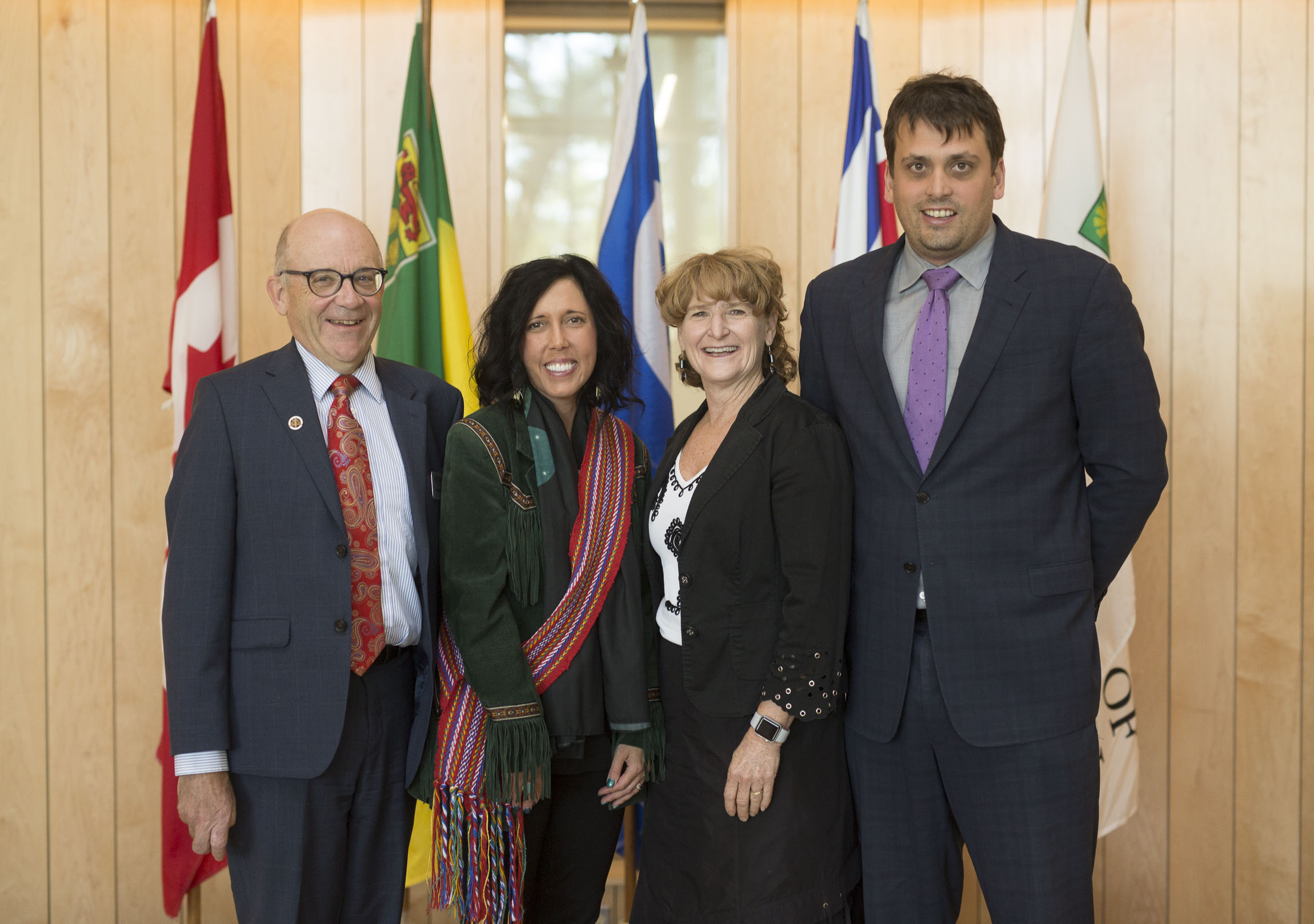
U of S to host CIHR Institute of Indigenous Peoples’ Health
SASKATOON – The University of Saskatchewan (U of S) will soon become the new home of the Institute of Indigenous Peoples' Health (IIPH)—one of 13 institutes of the Canadian Institutes of Health Research (CIHR)—under the leadership of the institute’s scientific director, Carrie Bourassa, who is joining the U of S College of Medicine.
“We are very excited to welcome Carrie and this institute which leads the national health research agenda to improve and promote the health of First Nations, Inuit and Métis Peoples in Canada,” said U of S Vice-President of Research, Karen Chad. “This is the right place to host this institute as it will build on the strengths of our growing hub of Indigenous health research and advance our efforts to work in partnership with Indigenous communities to improve health care both here in Saskatchewan and across Canada.”
Formerly located at the Health Sciences North Research Institute in Sudbury, Ont., the IIPH will begin operations at U of S starting Oct. 1. Bourassa will have a staff of four and will also serve as a faculty member in the college’s community health and epidemiology department.
“With the addition of the Institute of Indigenous Peoples’ Health at our college and university, we are truly positioned at the forefront of work with Indigenous communities on innovative medical research for improved health outcomes,” said Dr. Preston Smith, dean of the College of Medicine. “We are thrilled to have the institute here and to have Carrie join our faculty.”
Bourassa, who is Métis,said she looks forward to returning to the Prairies. Before becoming IIPH scientific director, Bourassa, who earned her master’s and PhD (in political science and social studies, respectively) at the University of Regina, spent more than 15 years as a professor of Indigenous health studies at the First Nations University of Canada.
“I am delighted to have the opportunity to continue to serve Indigenous communities at the University of Saskatchewan,” said Bourassa. “My priority is to lead efforts to strengthen Indigenous health research to improvethe health and well-being of First Nations, Inuit and Métis Peoples in Canada. We, at CIHR, remain committed to working closely with Indigenous communities to achieve our shared goals.”
Over the past two years, the IIPH has carried out community engagement across Canada and launched development grants for both the Network Environments for Indigenous Health Research and the Indigenous Component of Healthy Life Trajectory program, as well as launching the Indigenous Mentorship Network Program and the Indigenous Gender and Wellness Travel Award.
“We are focusing on privileging Indigenous knowledges and community-based research and ensuring that Indigenous communities across Canada are determining the research agenda,” said Bourassa.
Bourassa is a member of the College of New Scholars, Artists and Scientists of the Royal Society of Canada, a public member of the Royal College Council of the Royal College of Physicians and Surgeons of Canada, and recently became a board member of the Saskatchewan Health Quality Council. In 2012, Bourassa won the Wiichihiwayshinawn Foundation Inc. Métis Award in Health and Science.
In 2017, the CIHR and the Saskatchewan Government, along with other provincial partners, announced a combined investment of $63 million in funding and in-kind contributions for the Saskatchewan Centre for Patient-Oriented Research (SCPOR). Based at the U of S, the partnership brings together eight organizations that aim to improve health outcomes, and in particular, build capacity in Indigenous engagement and research across the province.
Also, in 2017, the U of S appointed its first research chair in Indigenous health––Dr. Alexandra King who holds the Cameco Chair in Indigenous Health. Malcolm King, a U of S faculty member in community health and epidemiology who was formerly scientific director at IIPH, is now the scientific director at SCPOR.
For more information, contact:
Jennifer Thoma
Media Relations Specialist
University of Saskatchewan
306-966-1851
jennifer.thoma@usask.ca

